- Home
- Paul Finch
Medi-Evil 2
Medi-Evil 2 Read online
Medi-Evil 2
Historical Horror and Fantasy
by Paul Finch
Published by Brentwood Press
Kindle edition
Copyright 2011 Paul Finch
This ebook is licensed for personal enjoyment only. This ebook may not be re-sold or given away to other people. If you would like to share this book with another person, please purchase an additional copy for each recipient. If you are reading this book and have not purchased it or it was not purchased for your use only then please return it to amazon.com. and purchase your own copy. Thank you for respecting the hard work of the author.
Front Cover image ©iStockphoto.com/duncan1890
Graphics by Eleanor Finch
Contents
Twilight In The Orm-Garth
The Amphibians
For We Are Many
Sources
TWILIGHT IN THE ORM-GARTH
1
English East Coast, March 1070
The road the ragged man followed had originally been constructed by the Romans. It struck southeast from the walled city of Lincoln, in Caesar’s time called Lindum, and followed a straight ridgeway of sod and stone erected by the legionaries to provide passage through the many meres and salt-marshes of that low-lying coastal region. Finally, it terminated at a great mound of rock overlooking a vast emptiness of sand and tidal water, which was known then by the name it is still known today – ‘the Wash’.
In the old tongue of the British, that ominous mound on the very crest of which the Roman cohorts flung oaken ramparts and raised the eagle-banner to ward off Jute and Friesian pirates, had been named Caiar Formor, or ‘Giant’s Throne’. In later days, when Norse and Saxon struggled for supremacy in those eastern realms, the endless acres of sodden land lying betwixt Ely and the River Humber came under the dominance of ‘the Five Burhs’, the armoured citadels of the Viking Danelaw. As such, the fortress of Caiar Formor was granted as spoil to a Nordic chieftain, Wulfric Sawtooth. This old and hoary-headed warrior rebuilt the broken-down stockades, and on the foundation stones of the old Temple of Claudius raised his dragon hall, re-naming the mighty stronghold ‘Wulfric’s Burh’. And so it remained, through the long years of civil strife and foreign incursion, until at last, every place from the Isle of Wight to Hadrian’s Wall, from Chester to Maldon, every cot and wold, every broad and byre and wood and fen lay under the happy control of a race bred from many disparate peoples, but all now melded together and called ‘the English’. And Wulfbury, as it was then called, belonged to Earl Eathelberht of Axholm, whose jewelled and gilded longhouse was a famed seat of wealth, and on the festive kalends of the year was alive with revelry.
But no good thing lasts forever.
So saw the ragged man that stormy night, as he huddled in his tattered cloak and walked in his worn wolfskin boots along the once-paved road, now a rutted track, and passed the charred, stinking ruins of mills and farms and once-thriving clutters of bogland cottages. For England now groaned under the yoke of crueller masters than it had ever known. The Norman horde of Duke William the Bastard, new-titled King and ‘Conqueror’, had seized this land by force of arms. But conciliation had not followed, and in the face of relentless stir and revolt, the fiery young suzerain had only this last winter opted to drive his army north to Durham, and en route had paid back those rebels by waging war on the very fabric of their land, burning crops and stores, slaughtering livestock, looting and raping, and littering the roads with innumerable dead.
As he headed east through the rain and darkness, the ragged man passed uncountable numbers of gibbets, each festooned with its own quota of serfs and cottars, most now bones and carrion and wreathed in the ungodly stench of decay. Trees and hay-derricks had been pressed into similar service; even the standing arch of a roadside chapel, now a burned, gutted shell, bore a glut of hanging forms, their taut ropes creaking in the wind. The ragged man pulled down the rim of his dripping hood and pressed on, for he had walked far and seen much the same along many moorland lanes, though, hardened to the horror as he was, he was loathe to understand how, almost overnight, this wealthy, ancient domain had turned to so foul a wilderness of misery and death.
It was midnight when he came in sight of Wulfbury mound, though much of its gaunt outline was lost in the murk. Famished and drenched, he at last reached the edge of its man-made ditch, where he teetered on what might have been his last legs. Though the floor of the ditch was invisible to him, he knew that sharpened stakes had been set upright down there. On the far side of it, perhaps fifteen feet away, there stood a great wall of pine-trunks, a towering palisade, and in the middle of that, directly across from the point where the road ended, a gateway in the manner of a drawbridge. Above this, obscured by the inky rain, he distinguished the bulky structure of the gatehouse.
He cupped his hands and shouted, though he was weak and hoarse. “Hello in there! Hellooo!”
When no reply came, he flung a stone at the drawbridge. It bounced from the sodden timbers with a hollow thunk, but still there was no response. The ragged man threw again, and again, each time choosing a larger missile, and at last aiming at the very hatches of the gatehouse itself. “For God’s sake … open up!” he cried.
A single shutter lifted, firelight spilling into the rain.
“Who the hell is it?” came a voice in the hard Norman-French the ragged man was so used to. “Be off with you, you wretch!”
“Gilbert!” the ragged man called. “Gilbert … it’s me … please …”
There was a brief, confused silence. “Who is that?”
“Gilbert … for Heaven’s sake!” The ragged man was almost bent to his knees. Wind tore at his grizzled garb; raindrops hit him like pellets of ice. “Gilbert … it’s me!”
“Eric?” came the voice, stunned. “Holy mother of Christ!”
There was a flurry of movement from within, a muffled shouting of orders, the blow of hammers as pegs were knocked loose, and finally the creak and grind of the drawbridge chains as it descended. Long before it lay flat, a figure had emerged from the torch-lit recess and hurried across the aged planks. He was tall but lean and now in late middle-age. As was the fashion for Norman men, he wore his white hair cropped close and was clean-shaven. The two of them met like the old friends they were, arms clasping, though even then the ragged man almost slumped to the ground.
“I thought you dead,” Gilbert said.
“Nearly …”
“Eric … what happened to you?”
“Too much to tell now. Is my father at home?”
“Come in, Eric.”
Eric leaned on Gilbert for support, and they crossed the bridge together, veering left through a doorway to the foot of a ladder, which rose ten feet to the gatehouse above.
“Can you make it up there?” Gilbert asked.
Eric nodded and began to climb, albeit slowly. At the top, he ascended into a spacious chamber constructed entirely from timber but clad with animal hides to keep out drafts. Torches hung in iron brackets, while in the centre of the room there was a brazier filled with hot coals. To one side, a rude table with benches at either end bore the remnants of an early-evening meal. Two other persons were present. One sat beside the table, the other stood close to the windlass by which the drawbridge was raised. By their padded leather hauberks and banded leggings, they were men-at-arms. Eric gave them only a cursory glance. To his knowledge, his father had at least forty such fellows in his employ. For the most part they were Bretons or Flemings who had come over during the invasion as mercenaries. Now that the bulk of the robbing and ransacking had been done, they’d found themselves with no option but to take up permanent positions as household militia. As a rule, they were a surly breed, and these two were no exception, as their sc
arred, brutal faces attested, though for the moment at least both regarded the new-arrival with wonderment rather than hostility. That someone of this ilk should have been admitted to the castle at so uncivilized an hour, let alone welcomed with open arms, was a new experience for them.
Gilbert climbed up into the gatehouse behind Eric, and ordered both soldiers to take a turn around the ramparts. Reluctantly, they put on their steel caps, collected their spears and set out in different directions, taking doors to the left and right. Gilbert attended to the windlass, cranking the drawbridge back into place, and, once it was raised, pegging it with a steel pin, which he drove in with a mallet.
Eric watched all this as he sat by the brazier, shivering.
Gilbert was knight-commander of the household, or banneret as he’d be known back in Normandy. He was currently on night-watch, for though he wore a square cloak of crimson cloth, fastened over his right shoulder with a brooch, beneath it his heavy ring-mail glinted, while his longsword was buckled in its scabbard and hung on his back. By contrast, Eric bore no weapons. His cloak trailed in ribbons, and beneath that he wore a hooded peasant’s smock belted at the waist with a piece of rope, coarse russet trousers and wolfskin boots cross-gartered to the knee. His black hair had grown long and wild and hung down past his shoulders, and he sported a thick beard and moustache.
“Is there anything to drink?” he asked.
Gilbert poured wine into an earthenware cup and handed it over. Eric gulped it down.
“You must be thirsty,” Gilbert said. “The fen-people brew that muck from nettles.”
“I know. But it’s better than ditch-water.” Eric drained the cup. “Gilbert, I asked you if my father was home?”
“Are you sure you want an answer to that?”
“It’s his fiftieth birthday, is it not?”
“It is. The whole family is gathering to celebrate.”
“The whole family … Christ save us!” Eric hung his head and clenched his fists, and it was only then that Gilbert noted the absence from Eric’s right forefinger of the equestrian seal, his official ring of knighthood. What that meant, Gilbert didn’t like to think.
“It’s not everyone who reaches fifty, Eric,” he ventured.
Eric rose wearily and limped across the room to the rear hatches. Whereas those at the front opened on the Lincoln road, those at the rear opened on the castle.
“Didn’t you come back here to celebrate with him?” Gilbert asked.
Eric lifted the wooden shutter. “I came back here because I had nowhere else to go?”
“Have you walked far?”
“I can barely remember a time when I wasn’t walking,” Eric replied, distracted.
Close by he could hear the ocean pounding on the shoreline rocks, but the rain drove into his face and the blackness was all-enveloping. Through flickers of distant lightning, he caught glimpses of Wulfbury itself, the great hillock on top of which Earl Eathelberht’s golden hall had once stood, but saw instead a monumental edifice of cemented stone, rising tier upon tier maybe a hundred feet into the screaming sky; a mighty, four-sided donjeon, or keep. The rain lashed it ferociously.
“There’s been some building work since last I was here,” he remarked.
“Your father is now ‘Count of Wulfby’,” Gilbert replied. “The king decreed it.”
Eric pondered this. As soon as the coronation was complete on that bloody Christmas Day in 1066, the new king’s barons and knights, knowing the rapacious nature of their master and how unwilling he would be to make good on his many promises, had raced out across this fallen land, seizing whatever they might, not just goods and chattels, not just the gold and gemstones of the plundered halls, but the broad acres themselves, the woods and hills, the orchards and vineyards, the villages and townships, and of course the folk therein, claiming titles and lordships which they had no right to, carving the once fair, prosperous kingdom into choice steaks, each one threatening to hold his gain with sword and lance if necessary. Eric’s father, Dagobert of Caux, in whose retinue Eric had ridden to battle on Hastings field, was no different. Though his hoard, it seemed, had now been granted to him in perpetuity.
“The king needs strong men as his tenants-in-chief,” Gilbert explained.
“He must,” Eric said, “if he permits them to raise stone fortifications.”
Back in Normandy, the great – and, naturally, most troublesome – families all held impregnable castles, which had often caused problems for the dukes. But the majority of these fortresses had been inherited from earlier days and the position was irreversible. That the same situation should be allowed to develop in England was astounding.
“Not only does he permit them to,” Gilbert said. “He orders them to. I don’t know where you’ve been, Eric, but the English now hate us more than ever ... outlaws and rebels haunt the countryside. The forests echo with the names of Hereward and Waltheof.”
“I know,” Eric said. “Worrying, isn’t it? To learn there are others as eager to kill as we are.” He closed the heavy shutter, and began stripping off his sodden rags. “Will it be well with you if I spend the night here in the gatehouse?”
“There’s no bed,” Gilbert said.
“No matter.” Eric draped his clothes around the brazier, and shoved a bench against the wall. “This will do.”
“Something to eat first?”
“That I’d be grateful for.”
Gilbert pushed a dish across the table. There was bread, cheese and a rasher of salted bacon on it. It wasn’t much, but again the unexpected guest ate with gusto. Though tired and hungry, Eric did not look to be in poor health. His physique was muscled and toned, and bore no obvious sign of injury. As far as Gilbert recalled, the only wound Eric had suffered at Hastings was a blow to the face, delivered after his helmet had been knocked off. The hard white blemish still cut a jagged path from Eric’s left eyebrow and down across this cheek. But there was nothing additional to that anywhere on his body, which maybe was odd. Eric had left the household in 1067, an errant younger son bound to make his own way in the world, and there had been numerous opportunities since for him to win renown in battle, the king having waged constant war to suppress the recalcitrant natives. But if that was the case, why was Eric back here now, sullen in manner and apparently destitute?
“I’m not certain your father will be pleased to see you, Eric,” Gilbert said. “Not in this needy state.”
Eric continued to eat. “Gilbert … when was he ever pleased to see me?”
2
When I was young I was frightened of dying, so my mother explained to me about the difference between Tir na nOc and Ysbaddaden. Tir na nOc, a land of plenty, was beyond the horizon, close to the point where the sun sets in the western sea. Most of our warriors travelled there after they were slain in battle, and would find much joy in its verdant glades. Maidens ran aplenty in that place, inviting lascivious pleasure. Beer and wine flowed all day long, and even when battles were fought no harm was done to the contestants, for pain and anguish were unknown in Tir na nOc. A noble warrior, once killed, might bask there for evermore, safe in the arms of his gods and surrounded by precious treasures. On the other hand, a warrior who had not performed valiantly during life might first be required to spend time in Ysbaddaden, a horrible land of mist and demons, found deep in the abyss. Here he must prove his valour, else be taken and tortured and devoured by the lost, cursed things that inhabit that realm. Only with courage will he resist these monstrosities, and if he performs accordingly, will be plucked from the darkness to join his fellows in the peace and splendour of Tir na nOc. I knew from those early days, that I would fight the enemies of my people with all the strength I had, for on no account would I doom myself to the woes of Ysbaddaden.
The first rays of sunrise fell on a furious combat.
Two knights circled each other in the stable yard, one slight of build yet quick on his feet and evidently brave, for his opponent was two heads taller and huge in statu
re. Both wore traditional coats of heavy mail, coifs and conical helms fitted with nose and cheek guards. Each carried a longsword in his right hand, and in his left a kite-shaped shield made from timber but faced with leather and strengthened with iron cross-bands.
They were panting loudly, their shields dented and scarred, yet still they launched attacks, feinting and slashing down hard, or viciously lunging. Each blow was ducked or parried. Between these flurries, they stalked each other like feral dogs. The smaller of the two made more regular assaults but always was fended off, and an experienced observer might soon realise that, for all his grunting and hissing, the larger combatant had the upper hand yet was deliberately not pressing his advantage.
After several minutes, the smaller made a crafty move.
Backing away, he hefted his sword to his shoulder, took a breath, and advanced again, aiming a huge backstroke at his foe. The larger man raised his shield, and in that instant the smaller one threw down his own shield, drew the dagger from his belt and drove it at his opponent’s midriff. The opponent sensed it coming and skipped backwards. The next thing the smaller fellow was down on one knee, the tip of his enemy’s blade at his throat.
“A devious ploy, my lord,” the larger man said, “but you over-extended your reach.” He placed a foot on his opponent’s right thigh and, with only a light push, tipped him over. “You’ve left yourself off balance as well. Once you’re on the ground without a shield, you’re as good as dead.” He stood back and sheathed his steel.
The smaller fellow nodded vigorously, stood, slid his sword into its scabbard and removed his helmet. His name was Trewan, and he was a fresh-faced, sunny-haired lad of only thirteen summers. By contrast, his opponent now removed his own helmet, to reveal the large head and bull-neck of a thirty-something man, and the broad, brutalised features of a practised warrior.

 Stolen
Stolen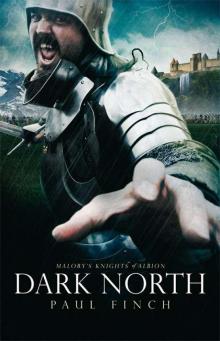 Dark North mkoa-3
Dark North mkoa-3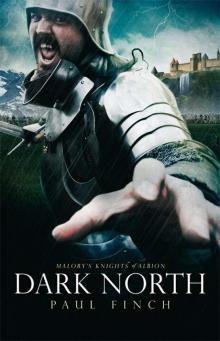 Dark North (Malory's Knights of Albion)
Dark North (Malory's Knights of Albion) a collection of horror short stories
a collection of horror short stories Sacrifice
Sacrifice Kiss of Death
Kiss of Death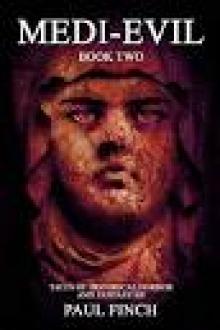 Medi-Evil 2
Medi-Evil 2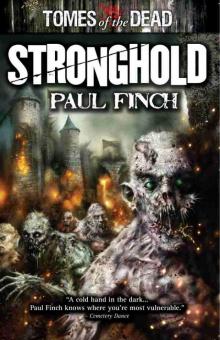 Stronghold
Stronghold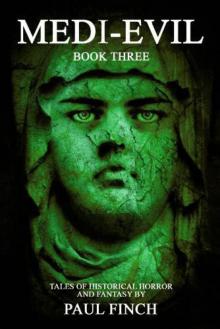 Medi-Evil 3
Medi-Evil 3 Dead Man Walking
Dead Man Walking Strangers
Strangers The Killing Club
The Killing Club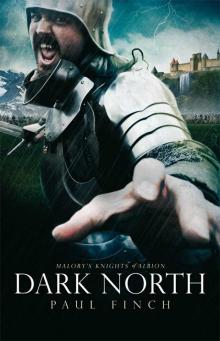 Dark North
Dark North A Wanted Man
A Wanted Man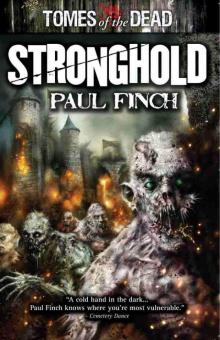 Stronghold (tomes of the dead)
Stronghold (tomes of the dead) Hunted
Hunted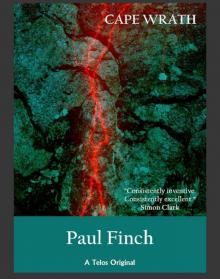 Cape Wrath
Cape Wrath Stalkers
Stalkers The Burning Man
The Burning Man Medi-Evil 1
Medi-Evil 1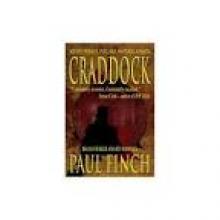 Craddock
Craddock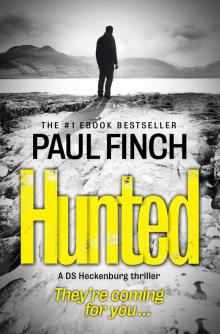 Hunted (Detective Mark Heckenburg Book 5)
Hunted (Detective Mark Heckenburg Book 5) 2nd Spectral Book of Horror Stories
2nd Spectral Book of Horror Stories The Chase
The Chase